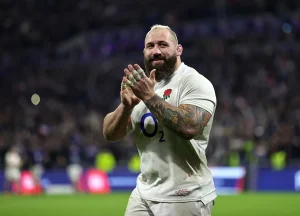I am not one to give up easily when pursuing goals – Eileen Shaiyen
A silent achiever and a woman whose personality exudes confidence and excellence, evident in the remarkable feats she has recorded in her personal and professional calling, Mrs. Eileen Shaiyen, Executive Vice Chairman, H. Pierson Associates Limited, is an embodiment of integrity and resourcefulness. In this interview, in response to her selection as one of the Amazons of Distinction Driving Nigeria’s Economic Growth, Shaiyen speaks on her career journey, values and the challenges facing women professionals, among other things. Excerpts:
Can you briefly take us through your background?
I was born in Ibadan, but I am from Delta State. I, however, had my primary and secondary education in Benin before attending the University of Ife. From there, I proceeded to the George Washington University in Washington, D.C. where I got my MBA in Finance and Investment. Originally, I went to the University of Ife to study Health Sciences because my father was a medical doctor. Since he wanted me to become either a dentist or a medical doctor, I decided to become a dentist. After a year studying Health Sciences, I concluded that I wasn’t enjoying it except for my love for my father. Ultimately, I moved to the Social Sciences Faculty which, subsequently, I think, made my father happy because he ended up still pleased with the outcome.
When I moved to the Social Sciences, I didn’t know anything about Social Sciences; so my first year was very rough. But afterwards, I met some excellent lecturers like Professor Sam Aluko and Professor Ojo, a situation which prompted me to take a course on money and banking, and that struck a chord with me because it was quite an interesting subject. When I finished in Ife, I went on to do my Master’s Degree at the George Washington University, where I majored in Finance and Investments, and which aligned nicely with what I picked up from Professor Ojo. Upon my coming back to Nigeria, I discovered that a lot of my friends were in certain banks. At the time, you had banks like International Merchant Bank (IMB), NAL, and Chase.
Those were the banks my friends were in and so I was magnetized towards these banks. Immediately, I applied to Chase, ICON, and IMB – although I found out that the younger and more exciting people were in IMB. Fortunately, IMB accepted me, and that’s how I went into banking and spent almost a decade in that sector. While in banking, I had the privilege of being exposed to so many aspects of the bank, which included development finance, treasury, and corporate finance.
This broadened my exposure and prepared me for my next step. On my next step, towards the later part of my banking career, a colleague of mine decided to set up a consulting business and asked me to support in a few areas. It turned out to be very exciting. I didn’t think I would be doing consulting, but my excitement got the better of me, and that’s how H. Pierson was established. By this time, I was married and had entered my child-bearing years.
I then set up H. Pierson in 1990 – 34 years ago. So that’s the story of my banking career. H. Pierson has gone on for almost three and a half decades and we have been able to serve most of the major sectors, starting with the banking sector. After serving most regulators, we branched out into the electricity, oil, and gas industries. We also work for parastatals and government agencies.
You said your dad wanted you to go into health sciences, but you switched. What informed your career choice, why did you leave Medical Sciences for Social Sciences?
Very interesting! If you recall at that time, we didn’t have the internet, most books were written in black and white with minimal illustrative pictures, and there were no videos. In Health Sciences at the time, we were dealing with molecular structures, atoms, and all those things. You, therefore, only succeeded by trying to create meaning out of the words in the books. Some of my classmates did very well, however some didn’t. It was then that I started discovering the kind of person I was. I could only relate to things I could mentally bring to life, so it became a very difficult process for me. I, therefore, decided to stop after a major lab session in my first year – I discontinued health sciences generally. However, Social Science wasn’t my choice. It was just because Professor Aluko, who knew my father in the days when we had lived in Ekiti State, was willing to take me into his Department. I started with Accounting, where I had to take courses in Economics. In my first year in Social Sciences, I didn’t have a clue what they were doing in class, so my first year was tough. That was how I switched careers from Health Sciences to Social Sciences and met Professor Ojo, who now led me into the excitement of banking.
What personal values can you ascribe to the enviable heights you have attained as a professional?
Tenacity comes first. When I was much younger, I was not one to give up easily when pursuing my goals, unless there was very clear evidence that signaled a dead-end. I have always had a philosophy that there is always light at the end of each tunnel. Also, over the years, I have developed good professional and business relationships, so you find out that a lot of clients we have maintained in H. Pierson have been with us for decades. Some of them have even been with us almost since inception and continue to do so till today. So, for my sustaining values, I would say tenacity, good professional relationships, and for a mother, I would add a very strong home support.
Speaking of very strong home support, I’m referring to a husband who encourages me to be the best that I can be, and children who, as they got older, could recognize the tension between work and home but are still able to find harmony.
So how would you assess the performance of women in the Nigerian corporate world in the last 10 years?
I would say they are doing relatively well compared to earlier years. In the 90s when I used to teach bankers, for example, one of the things I would observe was that, at entry-level, about 60% of the class would be female. And then, after a period of time, perhaps five years later, you would notice the 60% decreasing to say 30%, so women begin to drop off. But if you look at the last 10 years, that dropout or opt-out rate has significantly reduced. And I will tell you what my first main observation was. During the era of Sanusi Lamido Sanusi as the Central Bank Governor, he created major incentives for banks to expand their proportion of women. Banks were encouraged to allocate certain minimum percentages of leadership positions to women. It was something that banks took on and while it was largely carrot than stick, look at what we have today, look at the number of women who are CEOs of banks, executive directors, general managers, and so on. So, banking has done very well, and I see that regulatory incentive as a major driver. I see that the oil and gas sector is also progressing along those lines, but some sectors need to do much better, and one of the areas lagging badly is the political sector. If we can get what we have seen in banking happen in the political sector in terms of having women featuring much more as members of the House of Representatives and Senate, and as governors and deputy governors, Nigeria will be a better place.
Can you highlight the major challenges being faced by you and other female professionals in Nigeria?
One of the major challenges I observed, which was a learning point for me very early in my career, was to keep my femininity outside the workplace and blur it as much as possible. And so, if you took a look at my wardrobe in those times, it comprised mainly black and grey work clothes, like the men in black. So, when people see you, they don’t just see you as a woman but place focus on what you have to offer. Blurring out my gender and putting focus on my brain and ideas was the rule. If you trace a lot of the women who are doing well in the industries I mentioned earlier, you tend to find that their success is somehow tied around that. If you look at some of the obstacles that have been put on women in the other sectors that I said are not doing well, like the political terrain, you will see that there are a lot of attempts to bring out their gender and femininity, and once that is magnified around your identity as a woman, it brings you down. It happens a lot in politics.
Number two is between employers and the women themselves, I learned that the phase of motherhood can be very challenging for women, especially in the early stages, the childbearing and the child nurturing. A lot of women are forced to drop off their careers at those early stages of motherhood because it’s very demanding. And so, as society pressures them to stay at home and look after their husbands and children, as mothers, they must learn how to create a win-win situation by winning both at home and at work.
If you’re not able to manage that very well, then you fall prey to dropping off. So, in those childbearing years, the key is not to allow the challenges of motherhood to dominate the workplace. One must manage it and manage it well so that the work doesn’t suffer; no boss likes their work to suffer. While some women may need to proactively take time off to attend to these maternal pressures, many can manage them both quite effectively and I chose that route. I encourage women that they can do the same. I have four kids and was also a successful banker and consultant.
Despite the challenges involved in managing business in Nigeria, H. Pierson Associates Limited has been able to maintain its growth and corporate integrity. What corporate values can you ascribe to this achievement?
Since I have been in both the banking and consulting sectors for a long time, I must be very honest, I don’t hesitate in telling people that running a business in Nigeria is like swimming against the waves of the Atlantic Ocean – the more you try, the more you have to try. So, after 34 years of running H. Pierson, I think I can look back with smiles, knowing for a fact that we’re still waxing strong, even though it’s been a tough road to travel.
What have been the key components of success?
The first is keeping a positive outlook. If you don’t have a positive mindset, sometimes those waves will hit you and wreck you. When those challenging business cycles come on with those huge waves, the key is to stand strong, seek inherent opportunities, and have that positive mindset and determination that after each wave, there will be respite and success. The second major thing I will say is to focus.
A very close friend of mine who runs one of the biggest banks would always say to me, “Eileen stay focused.” And because the sources of derailment are so huge in the midst of battling those waves, I try to stay very focused knowing that the next wave is coming. I think my economics background also helped me, knowing that economic cycles, booms and busts, are part of life. So, you must prepare for each cycle phase as you go along. And then, even the way you run the business, you don’t have to hold on rigidly to your corporate strategy. Yes, you have this five-year strategy, but you’ve got to constantly tweak, because you know we’re in a very volatile environment and those waves are real. So those have been my tricks to success, survival, and longevity.
What advice do you have for young women and girls who are looking up to an outstanding personality like you?
First and foremost, there is so much in our environment that women and young girls face. A lot of negativity that speaks to them about limitations such as “You are a female, so you can’t do this. You are a female, you should be quiet, and you shouldn’t talk. You’re a married woman; you shouldn’t do this or that.”
There are just so many gender-based discouragements at every stage of your life – your own self-imposed limitations and those erected by our society. My first major message to ladies is to look past those limitations and stay away from those who give you those bad vibes.
And at each stage of your life – when you’re young, when you’re in school, when you are single and unmarried, when you get married – look beyond these limitations from relations, in-laws, friends, etc., and if possible, stay away from the sources of those limitations. Number two; make sure you grow to be financially successful because the forces that society puts against you will continue to cower you if you’re not.
And when you want to rise against them, because you’re financially strong, they give you a chance but when you’re not financially strong, you remain vulnerable, insecure and lacking the confidence to self-actualize. So, I tell women, you must work towards earning and building wealth. But carry it with a lot of humility and sanity
The post I am not one to give up easily when pursuing goals – Eileen Shaiyen appeared first on Vanguard News.






